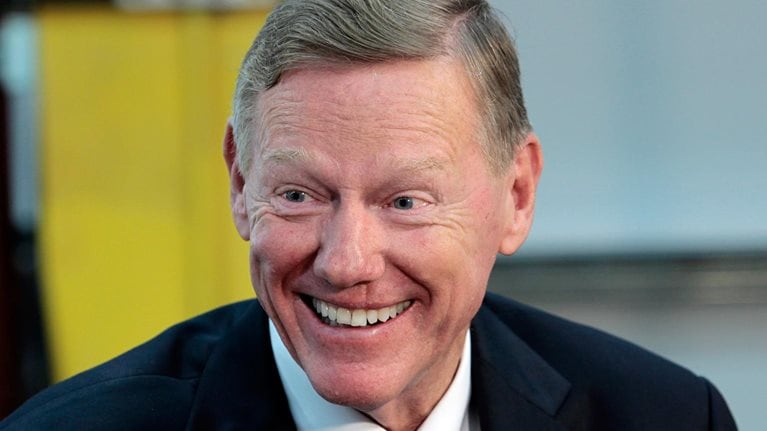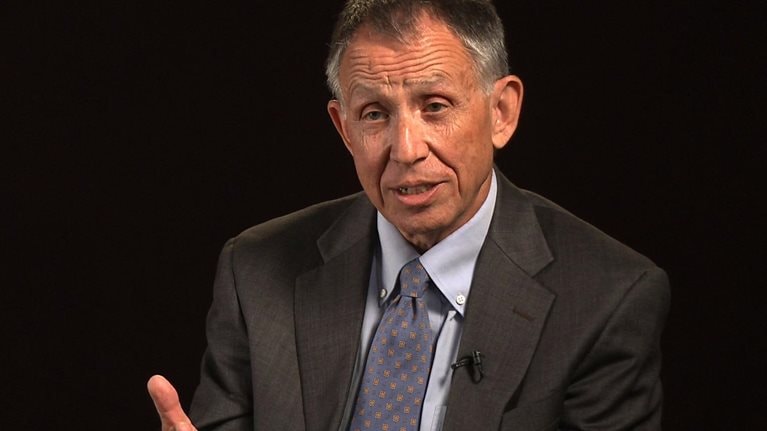Polish-born Shimon Peres is one of modern Israel’s defining figures. He is the ninth president of Israel, a position he has held since his election in 2007, and has served twice as Israel’s prime minister.
Peres immigrated with his family in 1934 from what was then Poland to what was then Palestine. He joined the Haganah defense force in 1947. After the establishment of the Israeli state in 1948, Peres, then just 24, was appointed head of the Israeli navy by Prime Minister David Ben-Gurion. In the years since, Peres has held nearly every major cabinet position, including deputy prime minister, minister of defense, and foreign minister. He has served as head of Israel’s Labor party many times and over the course of his career has been a member of many different political parties and coalitions.
Peres is a recipient, with Yitzhak Rabin and Yasser Arafat, of the 1994 Nobel Prize for Peace in recognition of his role in peace talks that led to the Oslo Accords. He was awarded a Presidential Medal of Freedom by President Barack Obama and an honorary knighthood by Queen Elizabeth II. He is the author of more than a dozen books, including the 1995 memoir Battling for Peace. He shared his unique perspectives on leadership in the modern age in a conversation with McKinsey’s Rik Kirkland in January.
McKinsey: You’ve cited Winston Churchill, Charles de Gaulle, and David Ben-Gurion as the three greatest leaders of the 20th century. What is it about them that you admire?
Shimon Peres: Each had a brilliant mind, and a brilliant pen. Their ability with a pen demonstrated many things: curiosity, memory, courage. They understood that you lead not with bayonets but with words. A leader’s words must be precise and totally committed. Words are the connection between leaders and the public. They must be credible and clear and reflect a vision, not just a position.
I could also name some American leaders. Think of Abraham Lincoln. No one described democracy better. He said a democracy is made by three conditions: a government “of the people, by the people, and for the people.” Everyone knows those words. There you have in three phrases something you could write entire books about. Or John F. Kennedy: “Ask not what your country can do for you. Ask what you can do for your country.” Or Theodore Roosevelt: “Speak softly and carry a big stick.” These are expressions that everyone remembers. And the style is the man.
McKinsey: But you have also said that in addition to keen intellect and verbal eloquence, great leaders must have the ability to act decisively.
Shimon Peres: The first time I met Ben-Gurion he told me that a great leader has to decide: either make peace and pay a price, or go to war and take a risk. No separation. No escape. Make up your mind. But above all this and behind it all, there is something else that people judge: Do you want to rule them, or do you want to lead? Do you want to be on top, or do you want to be ahead, showing the way?
You can’t lead by trying to follow the polls. The people may say, “We are for you.” But they are never for you 100 percent. They are divided, maybe 51 percent for you and 49 against. Maybe a bit less or a bit more. But it’s a shifting situation. You must carry on and earn their trust. You shouldn’t be afraid to be afraid. But you shouldn’t be afraid to be courageous as well.
McKinsey: How does a leader project confidence even when he or she harbors doubts?
Shimon Peres: The first rule is no double talk. Don’t say things in private that contradict your public statements. If people see that you say one thing in private and another in public, you are lost.
McKinsey: Another challenge for leaders is reconciling their long-term vision against what it takes just to get through the next few months. How do you strike that balance?
Shimon Peres: The last two decades we have witnessed the greatest revolution since Genesis. States have lost their importance and strength. The old theories—from Adam Smith to Karl Marx—have lost their value because they are based on things like land, labor, and wealth. All of that has been replaced by science. Ideas are now more important than materials. And ideas are unpredictable. Science knows no customs, no borders. It’s immeasurable, unpredictable, unprecedented. It doesn’t depend on distances or stop at a given point.
Science creates a world where individuals can play the role of the collective. Two boys create Google. One boy creates Facebook. Another individual creates Apple. These gentlemen changed the world without political parties or armies or fortunes. No one anticipated this. And they themselves did not know what would happen as a result of their thoughts. So we are all surprised.
It is a new world. You may have the strongest army—but it cannot conquer ideas, it cannot conquer knowledge. Now when you try to anticipate what is possible, you must go to books or laboratories, not simply to the stock exchange. You must exercise your brain. And you can keep your brain fresh if you use it.
McKinsey: In a world where ideas play such an important role, is it more important for modern leaders to be disciplined or to be creative?
Shimon Peres: The mind of a leader must be free—a mind that can dream and imagine. All new things were born in dreams. A leader must have the courage to be a nonconformist, just like a scientist. He must dream even if he dreams alone or if people laugh at him. He must not let his heart falter.
McKinsey: So leaders must be able to communicate clearly and act decisively. But before that they need curiosity and vision.
Shimon Peres: Decisiveness alone is not enough.
McKinsey: In the wake of the financial crisis, there has been a lot of discussion about governments reasserting authority and political leaders demanding a greater say over affairs in the private sector. Does that present new challenges for business leaders?
Shimon Peres: Nations and states remain a force. And there are also international organizations like the World Bank or the United Nations. But today, civil society is stronger and greater than governments or international organizations.
McKinsey: How has the spread of new technologies like the Internet, smartphones, and social media changed the landscape for leaders?
Shimon Peres: Today, the separation between generations is stronger than between nations. Our children say, “Please don’t impose upon us your own arrogance—the world you created, wounded by war, corrupted by money, separated by hatred. And don’t try to build artificial walls between us and other youngsters.” Because they were born in a new age. For them, the modern equipment of communication is what paper and pen are for us. They can communicate much more easily and don’t feel all this hidden discrimination that we were born with and find so difficult to get rid of.
McKinsey: When you look into the future, given what you’ve said about the critical role of science and ideas, what will be the drivers for the global economy?
Shimon Peres: Today unemployment is the greatest problem we face. But I think that’s in part because we employ wrongly. The greatest branch of the economy in the future will be learning and teaching and educating. Learn more, work less. I think the proportion will change. Most of our time we will either be studying or teaching or doing research. There is no end to learning, there is no end to research, there is no end to imagination—and no limit to creativity.


